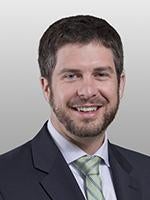In United States v. Sanford-Brown, Limited, No. 14-2506 (7th Cir. June 8, 2015), the Seventh Circuit declined to adopt the “so-called doctrine of implied false certification” to establish liability under the False Claims Act (“FCA”). This doctrine treats an invoice submitted by a contractor as an implicit representation that the contractor has complied with any relevant contract terms, laws, or regulations, a representation that is false if the contractor knows it has not actually complied. Currently, the First, Second, Third, Fourth, Sixth, Eighth, Ninth, Tenth, Eleventh, and D.C. Circuit have all adopted the doctrine of implied false certification in some form; the Fifth Circuit has not. Sanford-Brown clarifies the Seventh Circuit’s previously-unsettled position on the doctrine and extends the existing circuit split regarding whether it can establish FCA liability.
Sanford-Brown College is a for-profit educational institution that received federal subsidies from the Department of Education (“DOE”) under Title IV of the Higher Education Act. Receipt of the subsidies required Sanford-Brown to enter into a Program Participation Agreement (“PPA”) with the DOE, which conditioned Sanford-Brown’s initial and continuing program eligibility on compliance with a number of statutory, regulatory, and contractual requirements. Indeed, the Seventh Circuit noted that Sanford-Brown’s PPAs incorporated by reference “thousands of pages of other federal laws and regulations,” and included “certifications of existing facts and forward-looking promises that the institution will abide by certain statutes and regulations attendant to Title IV.”
At issue before the Seventh Circuit were allegations by qui tam relator Brent Nelson, Sanford-Brown’s former Director of Education, that the institution’s recruiting and retention practices violated a number of the federal regulations with which its PPA required compliance. According to Nelson, this resulted in the submission of thousands of false claims to DOE, violating the FCA under two separate theories: (1) a False Record Theory, by which Sanford-Brown agreed to comply with the Title IV regulations when it entered into the PPA and fraudulently submitted applications for federal subsidies knowing it did not comply with the regulations; and (2) a False Presentment Theory, by which continued compliance with the Title IV regulations incorporated into the PPA was a “condition of payment” and Sanford-Brown submitted false claims for payment because it failed to comply with those regulations. The district court rejected the False Record Theory because the relator did not offer any evidence regarding Sanford-Brown’s state of mind when it entered into the PPA, and the False Presentment Theory finding that the Title IV regulations were conditions of participation, not payment. The Seventh Circuit affirmed the district court’s grant of summary judgment to Sanford-Brown and analyzed each of Nelson’s FCA theories.
As to Nelson’s False Record theory, the Seventh Circuit found that to establish that Sanford-Brown knowingly made a false statement or record to receive money from the government, Nelson had to prove that the college entered into the PPA with the intent to defraud the government. The Seventh Circuit agreed with the district court’s conclusion that Nelson had failed to make such a showing.
Under his False Presentment theory, Nelson argued that by entering into the PPA, Sanford-Brown certified its continuing compliance with all applicable laws and regulations, and that where it failed to do so, any claims submitted for payment would be false or fraudulent because compliance was a condition of payment. The Seventh Circuit agreed with the district court’s finding that compliance was a condition of participation in the program, but not payment. Thus as with the False Record theory, Sanford-Brown was not liable under the FCA for failing to comply with the eligibility requirements unless it fraudulently entered into the PPA.
Accordingly, the Seventh Circuit concluded that, Sanford-Brown’s certification of compliance notwithstanding, it would be unreasonable to hold that continued compliance with the multitude of statutes and regulations incorporated by reference into the PPA was a condition of payment for purposes of FCA liability. In closing, the Seventh Circuit noted that any violations of the eligibility conditions were better dealt with by the DOE through an administrative proceeding.
The Seventh Circuit’s decision stands in stark contrast to a January 2015 Fourth Circuit decision adopting the doctrine of implied false certification in part because “the weight of authority has shifted significantly in favor of recognizing this category of claims at least in some instances.” United States v. Triple Canopy, Inc., 775 F.3d 628, 635 n.3 (4th Cir. 2015). Thus the Sanford-Brown decision breathes new life into the debate as to the doctrine’s viability, and offers contractors at least some additional basis to argue that an FCA claim based upon it should fail.



 />i
/>i

